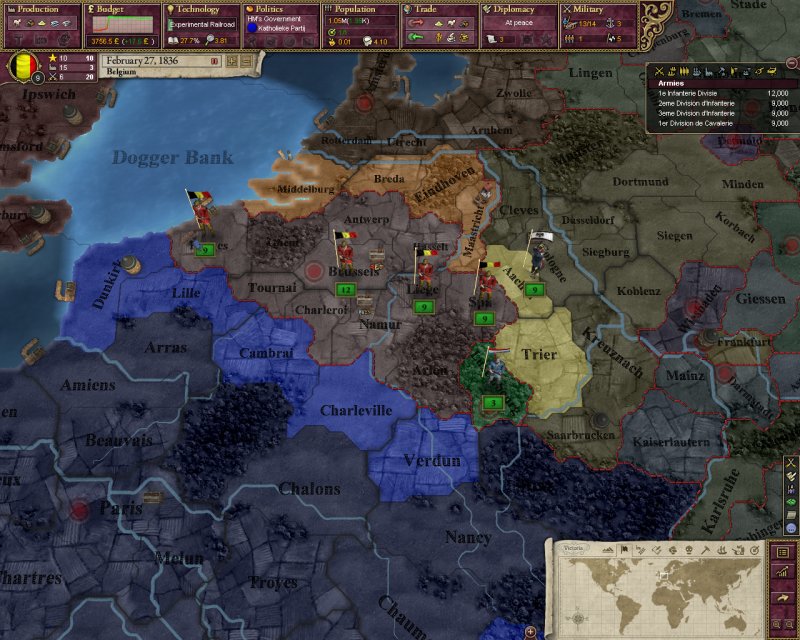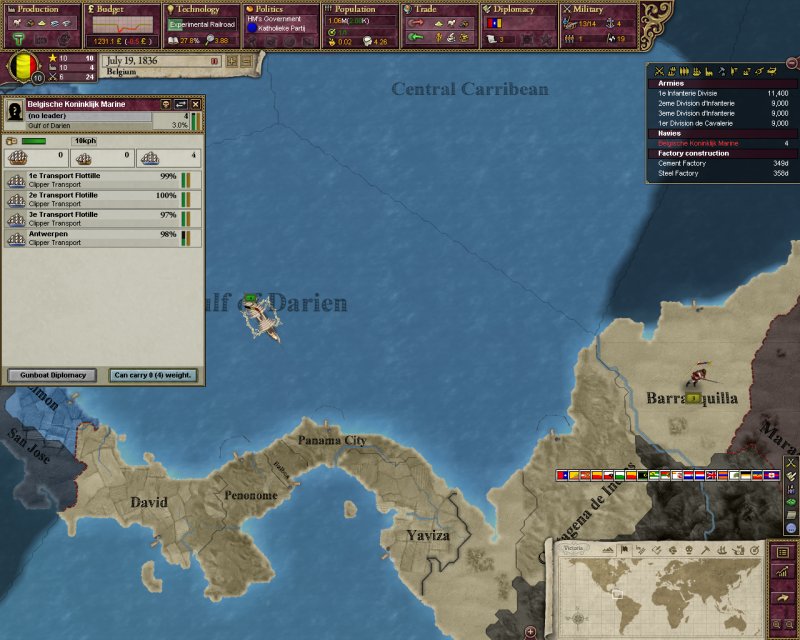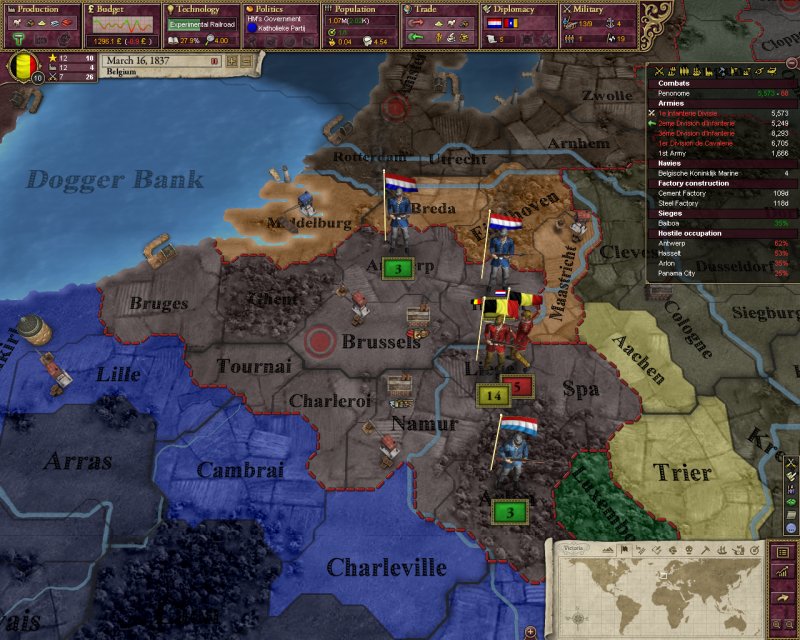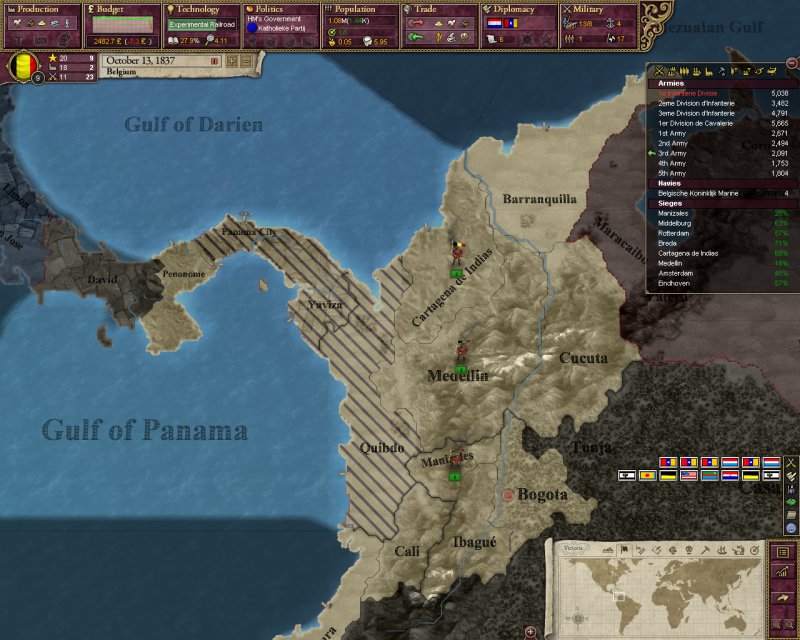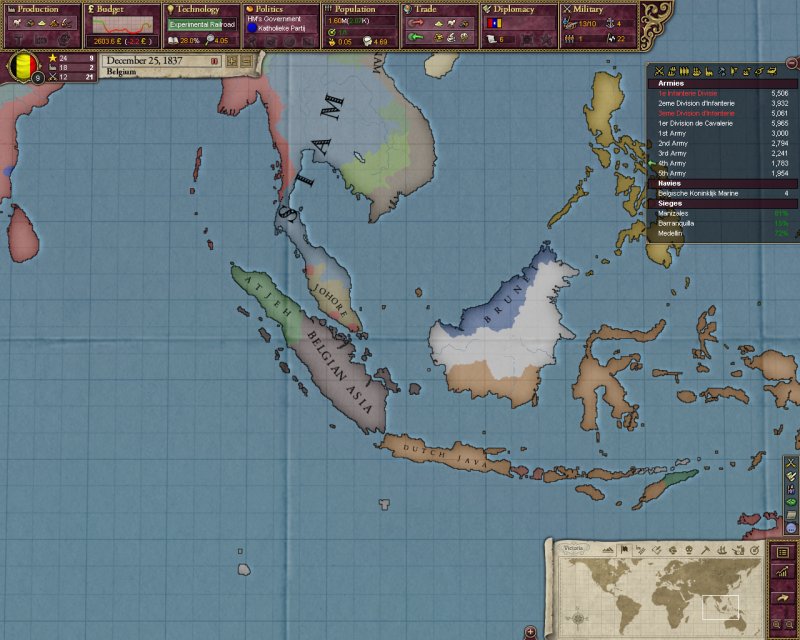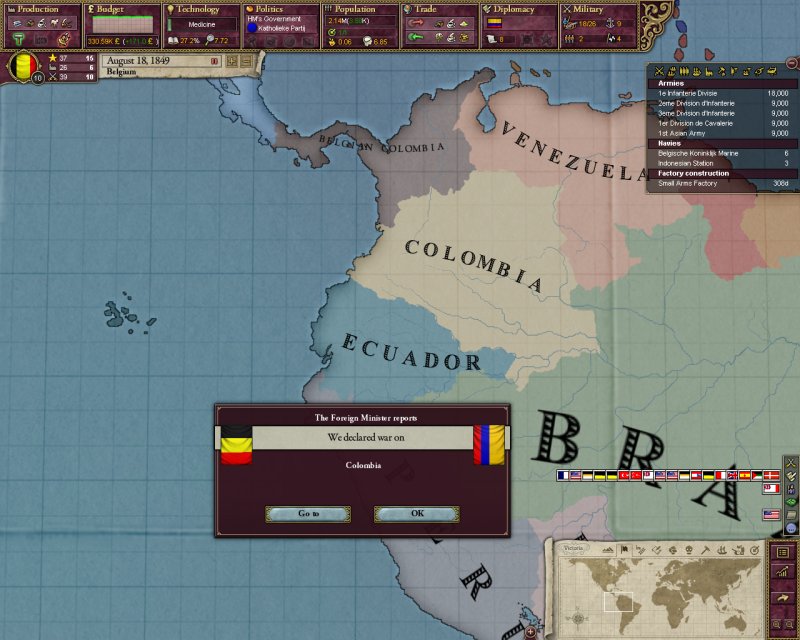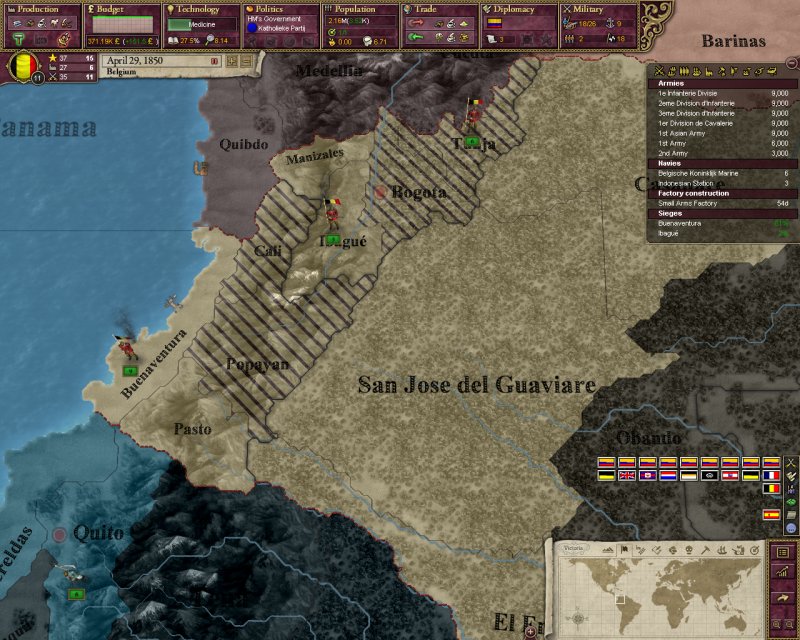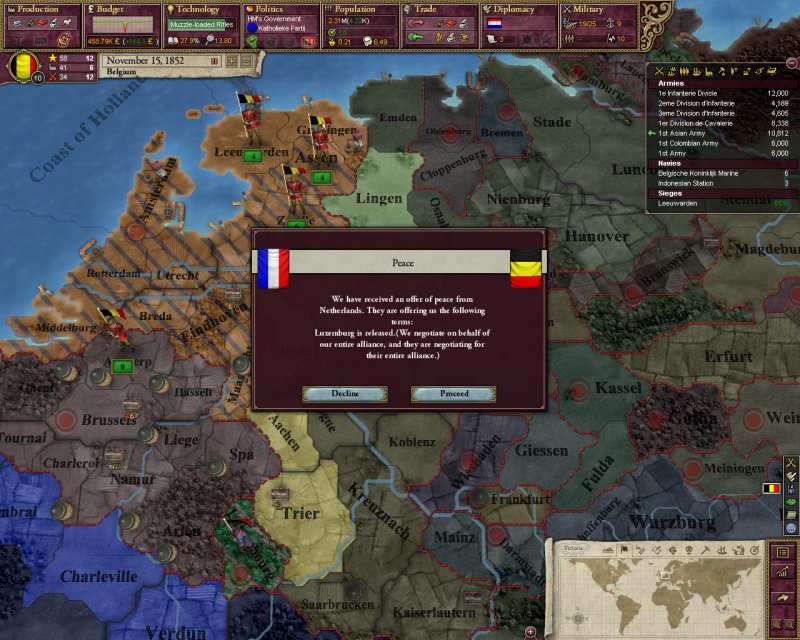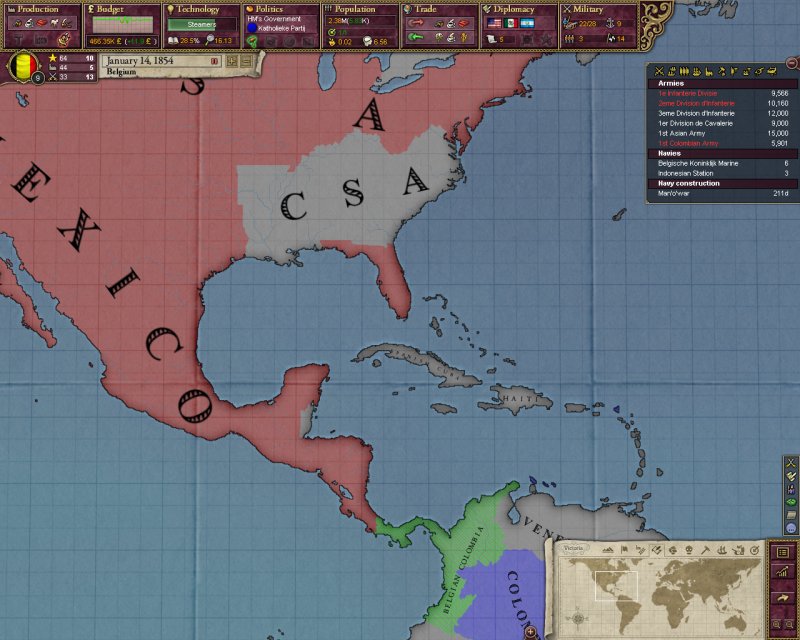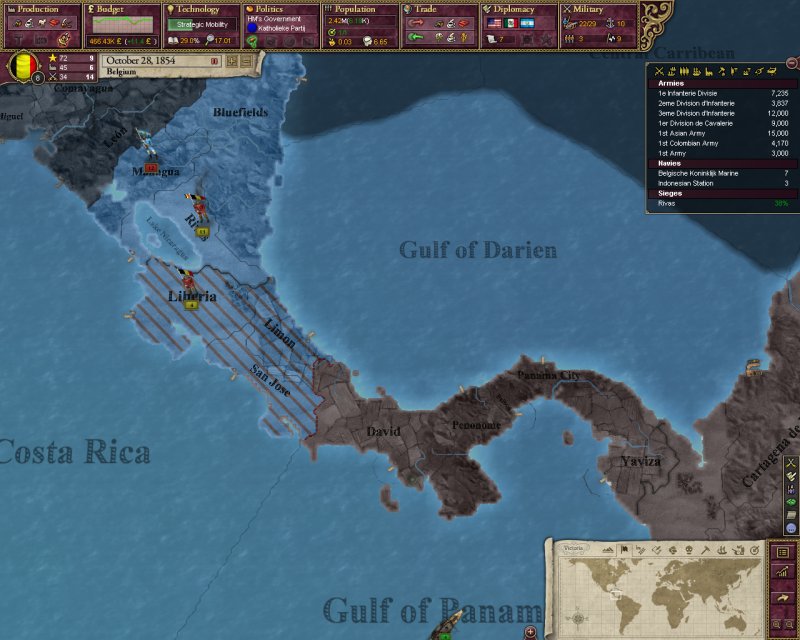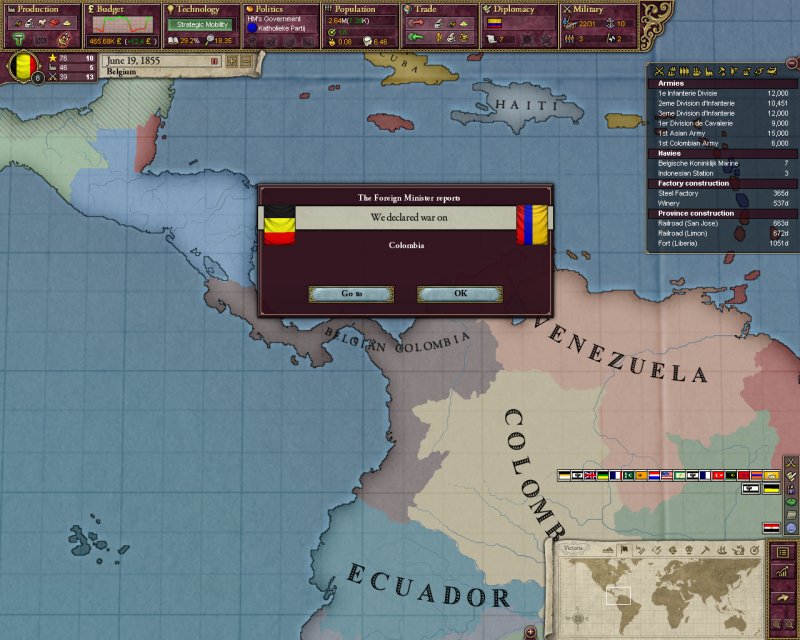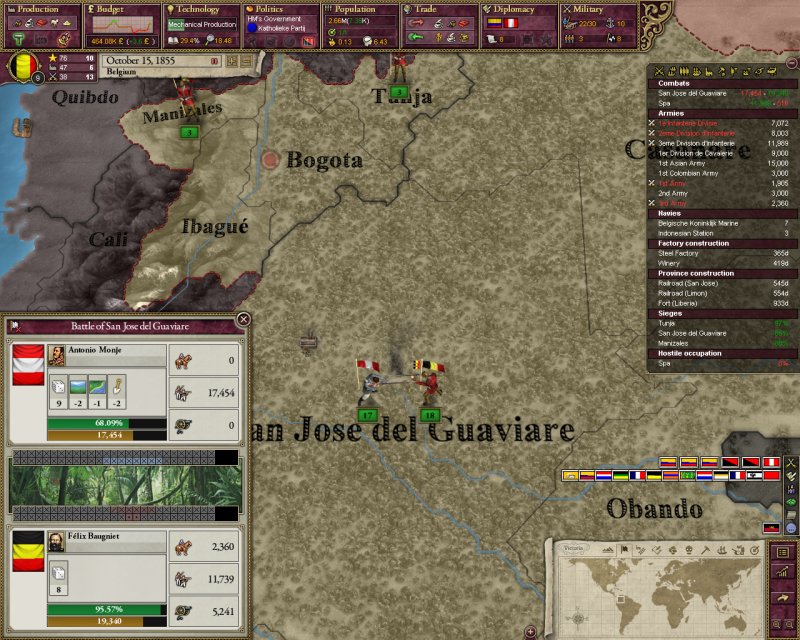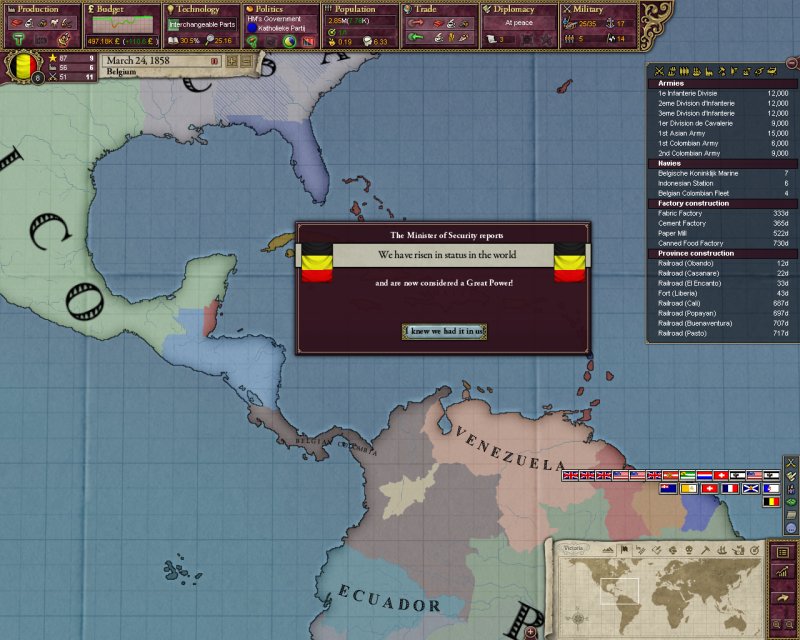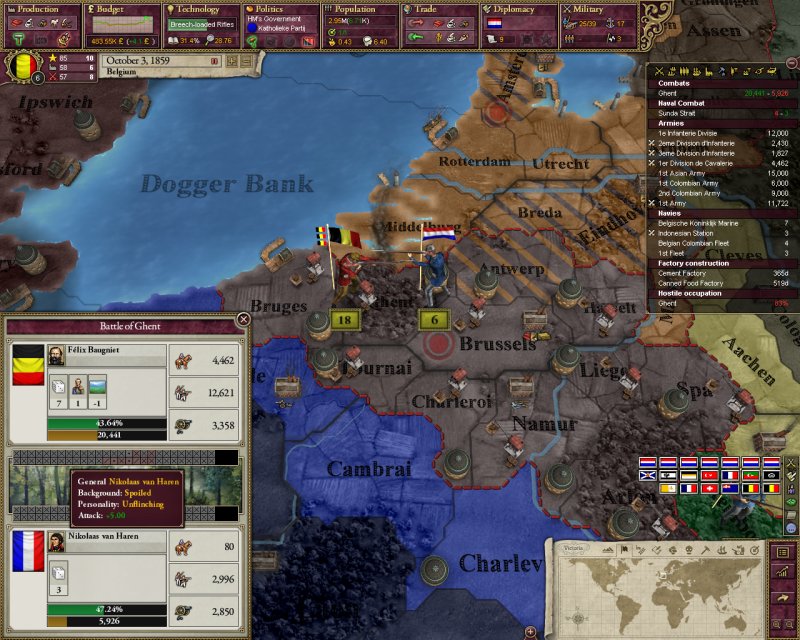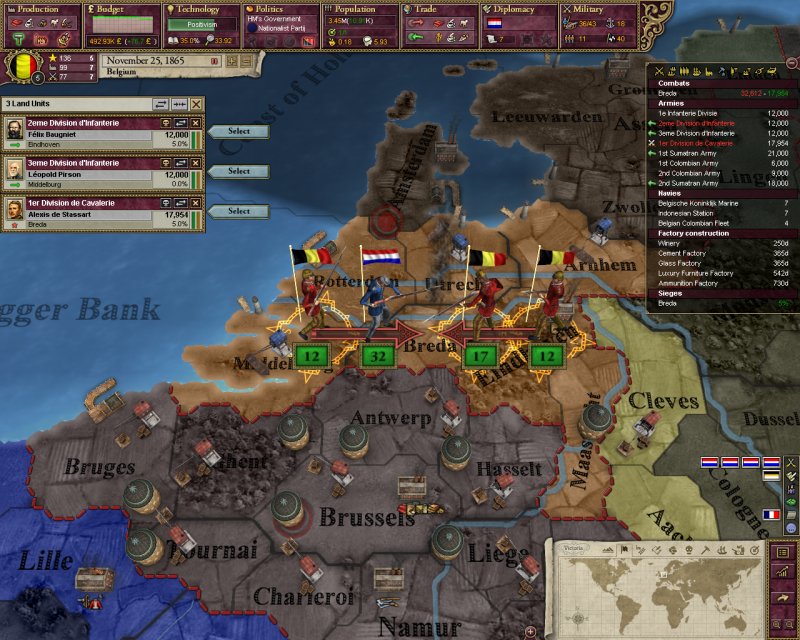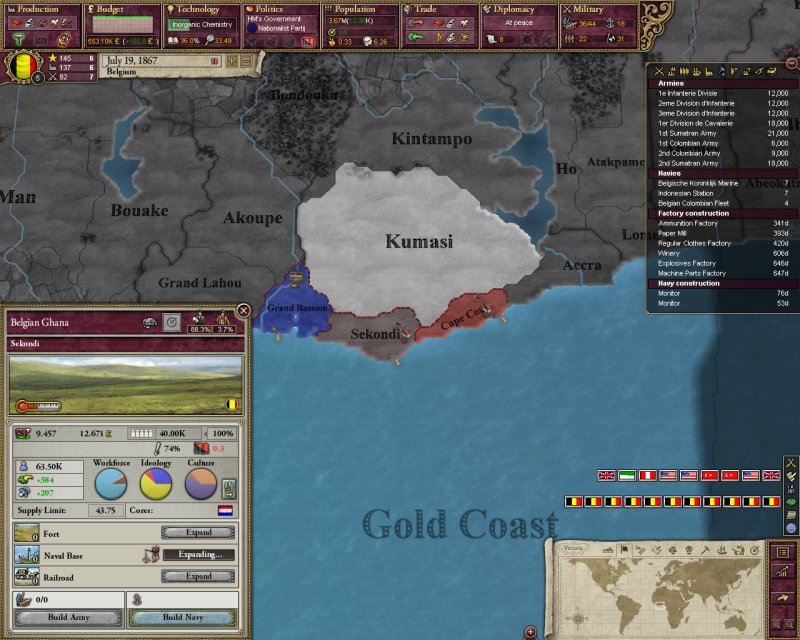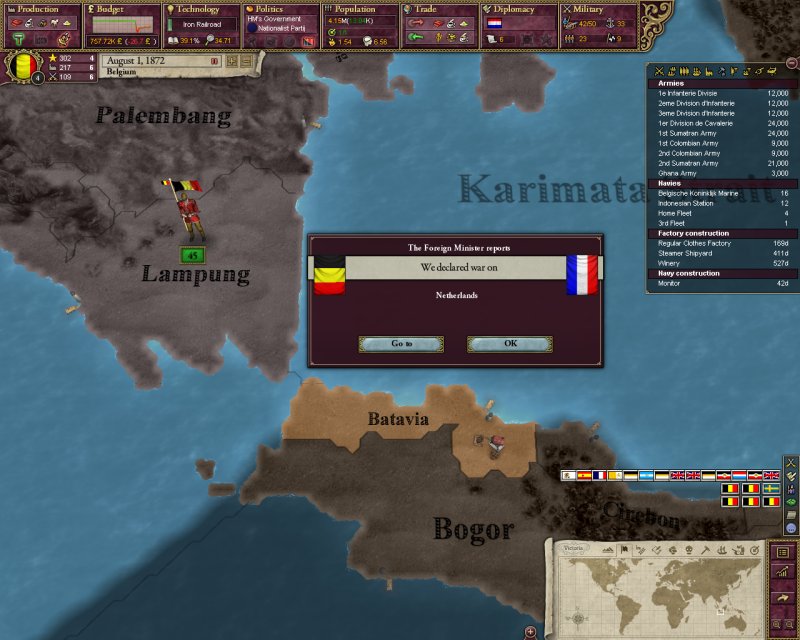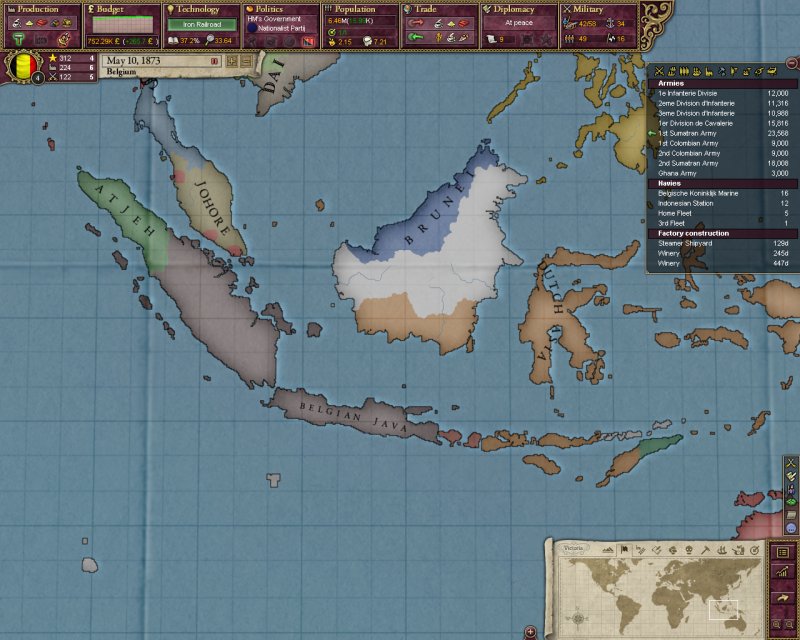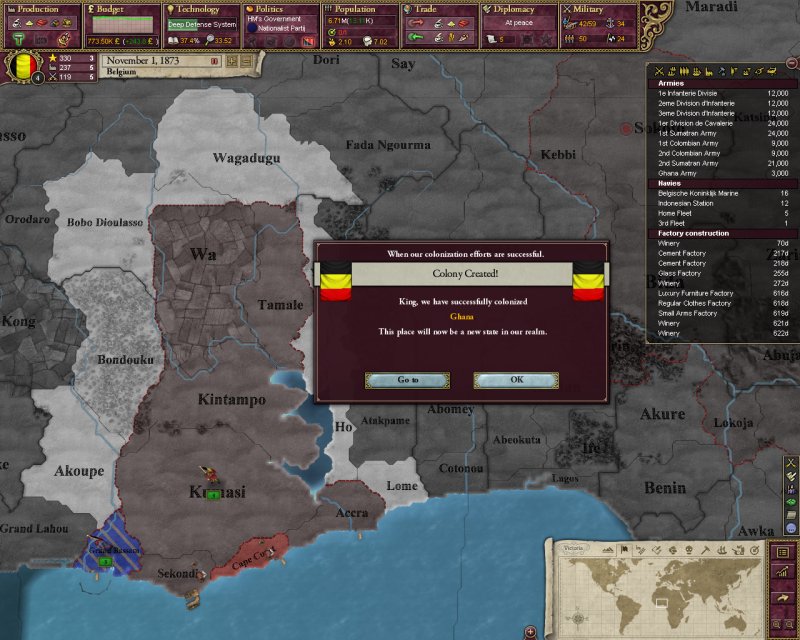Chapter I
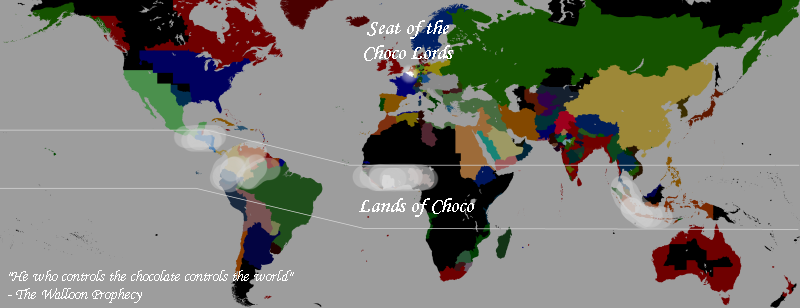
In the capital city sometimes likened to a whited sepulcher, the central offices of the Company crouched under their formative scaffolding. But in the basement of a completed wing, a meeting was taking place between some Gentlemen, capitalists and representatives of the state.
“Gentlemen”, one said, “we live in an age of opportunity. There is much our newly-formed country can accomplish, but it will require action and planning. You have all heard of Cailler’s Swiss chocolate factory; you all know of Van Houten’s so called ‘Dutch Process’ of removing chocolate’s bitter taste to create edible chocolate bars. Are we to sit back and let other nations reap the profits of what is bound to be humanity’s most prized commodity? As a hot-blooded Walloon I say no! Belgium must conquer the world’s chocolate trade and it must do so at the source. Our factories can master and improve on this so called ‘Dutch Process’, but we must secure our supply and attain a monopoly on cocoa production.”
There was much assenting and nodding of heads and tapping on the table. One of the other Gentlemen said,
“But do we have the means to pursue this strategy? Already, our former Dutch overlords may be planning a war of reconquest. And the world is watching – overseas military adventures will raise eyebrows, if not swords.”
“I believe it is feasible. We are currently under the protection of the United Kingdom, and our home army is capable of holding off a Dutch invasion. In the meantime, if you would care to look at these maps,
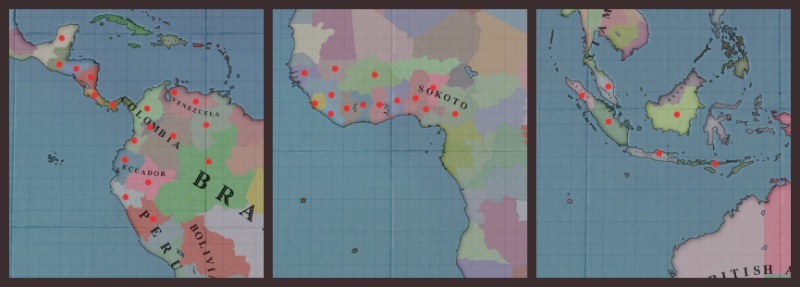
the collapse of the Spanish Empire has given rise to new states at the source of the cocoa. Divided, they can be conquered. In the East Indies, our Dutch rivals have set up cocoa plantations that threaten to rival or even exceed the New World in output. These can be put under our control if we gain the upper hand on them in war. Finally, the western part of the Dark Continent is perfectly suited for the cultivation of cocoa trees but conditions prohibit large scale settlements for the time being. Our colonial competitors have some outposts there, and every care must be taken that they do not move before we do in that theatre. I propose we send an expedition to Colombia to establish our first cocoa plantations and a base of operations for the spreading of our influence across the Americas.”
“But what of His Majesty? He must give his consent to such an operation, seeing as it must be conducted in the name of our nation.”
“Do not worry about that”, a third Gentleman and representative of the state said, “we will have His Majesty’s cooperation. Our interests are embedded deep within the ruling Katholieke Partij, and we are asserting influence over the competing Liberale Partij as well. Our interests are the interests of the nation.”
“Then we are decided?”
“Belgium has decided.”

In the capital city sometimes likened to a whited sepulcher, the central offices of the Company crouched under their formative scaffolding. But in the basement of a completed wing, a meeting was taking place between some Gentlemen, capitalists and representatives of the state.
“Gentlemen”, one said, “we live in an age of opportunity. There is much our newly-formed country can accomplish, but it will require action and planning. You have all heard of Cailler’s Swiss chocolate factory; you all know of Van Houten’s so called ‘Dutch Process’ of removing chocolate’s bitter taste to create edible chocolate bars. Are we to sit back and let other nations reap the profits of what is bound to be humanity’s most prized commodity? As a hot-blooded Walloon I say no! Belgium must conquer the world’s chocolate trade and it must do so at the source. Our factories can master and improve on this so called ‘Dutch Process’, but we must secure our supply and attain a monopoly on cocoa production.”
There was much assenting and nodding of heads and tapping on the table. One of the other Gentlemen said,
“But do we have the means to pursue this strategy? Already, our former Dutch overlords may be planning a war of reconquest. And the world is watching – overseas military adventures will raise eyebrows, if not swords.”
“I believe it is feasible. We are currently under the protection of the United Kingdom, and our home army is capable of holding off a Dutch invasion. In the meantime, if you would care to look at these maps,

the collapse of the Spanish Empire has given rise to new states at the source of the cocoa. Divided, they can be conquered. In the East Indies, our Dutch rivals have set up cocoa plantations that threaten to rival or even exceed the New World in output. These can be put under our control if we gain the upper hand on them in war. Finally, the western part of the Dark Continent is perfectly suited for the cultivation of cocoa trees but conditions prohibit large scale settlements for the time being. Our colonial competitors have some outposts there, and every care must be taken that they do not move before we do in that theatre. I propose we send an expedition to Colombia to establish our first cocoa plantations and a base of operations for the spreading of our influence across the Americas.”
“But what of His Majesty? He must give his consent to such an operation, seeing as it must be conducted in the name of our nation.”
“Do not worry about that”, a third Gentleman and representative of the state said, “we will have His Majesty’s cooperation. Our interests are embedded deep within the ruling Katholieke Partij, and we are asserting influence over the competing Liberale Partij as well. Our interests are the interests of the nation.”
“Then we are decided?”
“Belgium has decided.”


